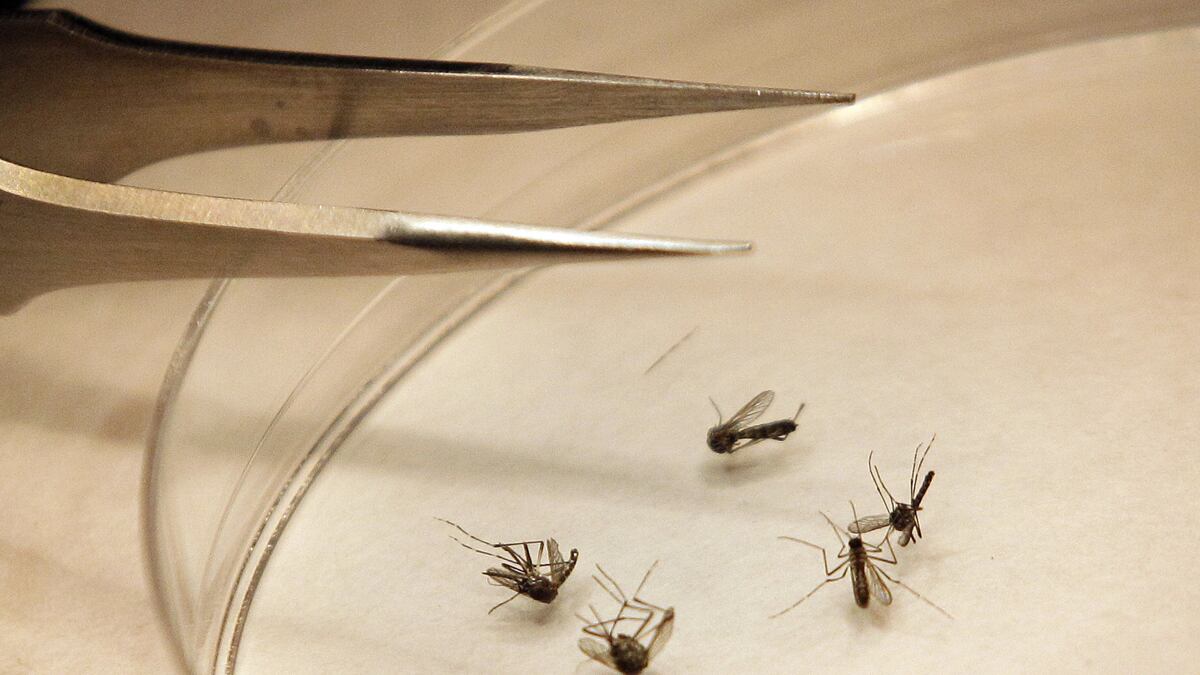How does it transmit?
West Nile Virus is an infectious disease spread by mosquitoes that have fed on infected birds. The virus is then transmitted from the mosquito to humans or animals it bites. In very rare cases, West Nile has spread through blood transfusions, organ transplants, and breastfeeding. The chance of contracting the disease through medical procedures is very low, because all donated blood is tested before being used. The virus doesn’t transmit through contact like touching or kissing.
What are the chances of getting it?
It’s hard to say exactly how many people are carrying West Nile because only 20 percent of people infected actually show symptoms—leaving 80 percent of the infected unaware that they have the virus. Of those, only 1 percent result in a severe infection, called West Nile encephalitis.
How can it be avoided?
The U.S. Centers for Disease Control and Prevention offers a variety of tips to lessen your chances of contracting the virus, most of which are second nature to those living in mosquito-heavy areas. Cover up as much as possible, and spray bug repellent on whatever skin is showing. Try to stay inside at dawn and dusk, when mosquitoes are most active. Double-check the screens in your doors and windows to make sure there aren’t cracks where mosquitoes can slip through. And to make sure the pests aren’t breeding on your property, drain all standing water like ponds, birdbaths, buckets, and anywhere water collects.
Are some people more at risk?
Like many viruses, people with already weak immune systems are more at risk to contract West Nile. People above the age of 65 and pregnant women have a greater chance of catching the virus. Also, those with HIV, organ transplants, or anyone who has recently gone through chemotherapy should be extra cautious about avoiding mosquitoes.
What are the symptoms and how are they treated?
Between three days to two weeks after being bitten by an infected mosquito, an individual may begin to exhibit symptoms, which include fever, headache, nausea, vomiting, and rashes. These symptoms may last for a few days or weeks, while the more serious—but much rarer—version leaves sufferers with high fevers, disorientation, convulsions, a stiff neck, numbness, and possible paralysis or coma. This can last for several weeks and a few ailments could be permanent. The symptoms can be treated individually, and more severe complications can be avoided with hospital care. Unfortunately there is no cure for West Nile Virus.

Is it possible to find out if you have it?
The most accurate method of determining whether you have West Nile Virus is by running a serology test, which tests a blood sample for antibodies against the virus. It’s also possible to use a head CT or MRI scan or a complete blood count.
What are the chances of surviving the virus?
West Nile Virus is usually mild and rarely deadly. But for those with West Nile encephalitis, the most severe version of the illness, it’s possible to experience brain inflammation—these cases have an approximate 90 percent survival rate. For those with more extreme symptoms, permanent brain damage or muscle weakness could be sustained.






